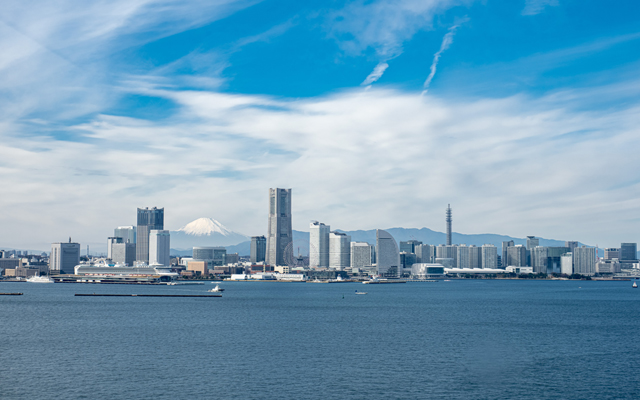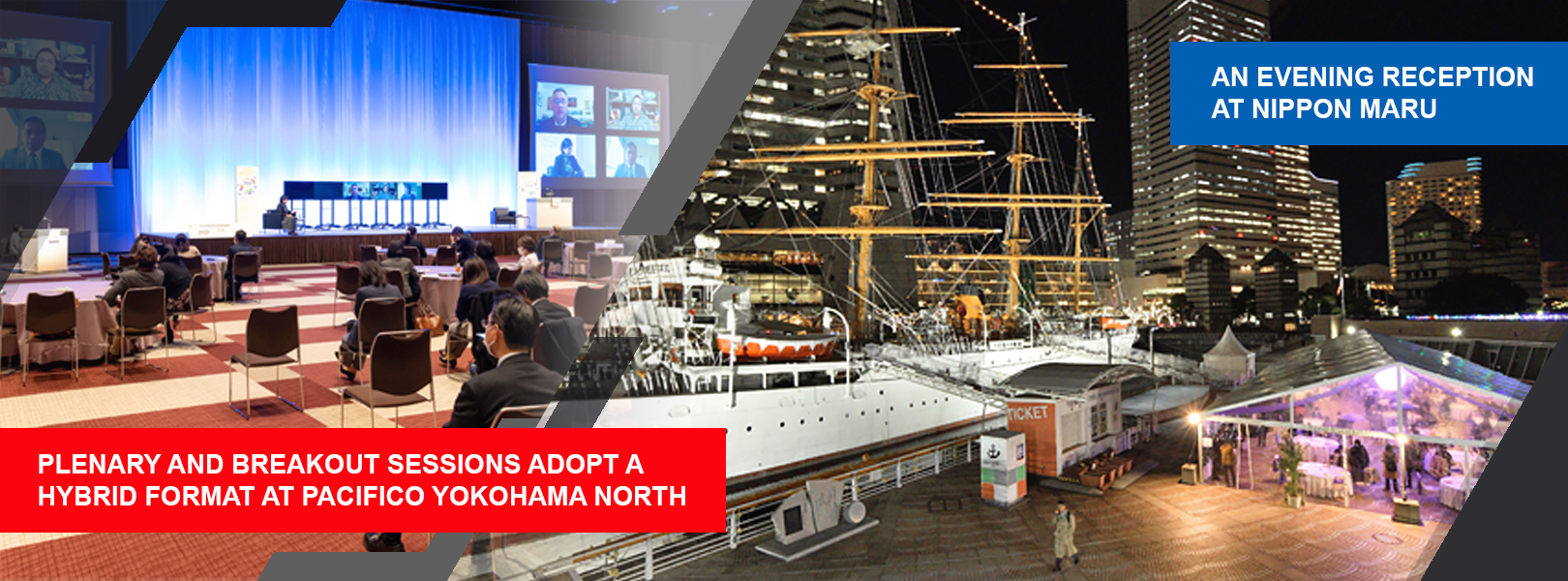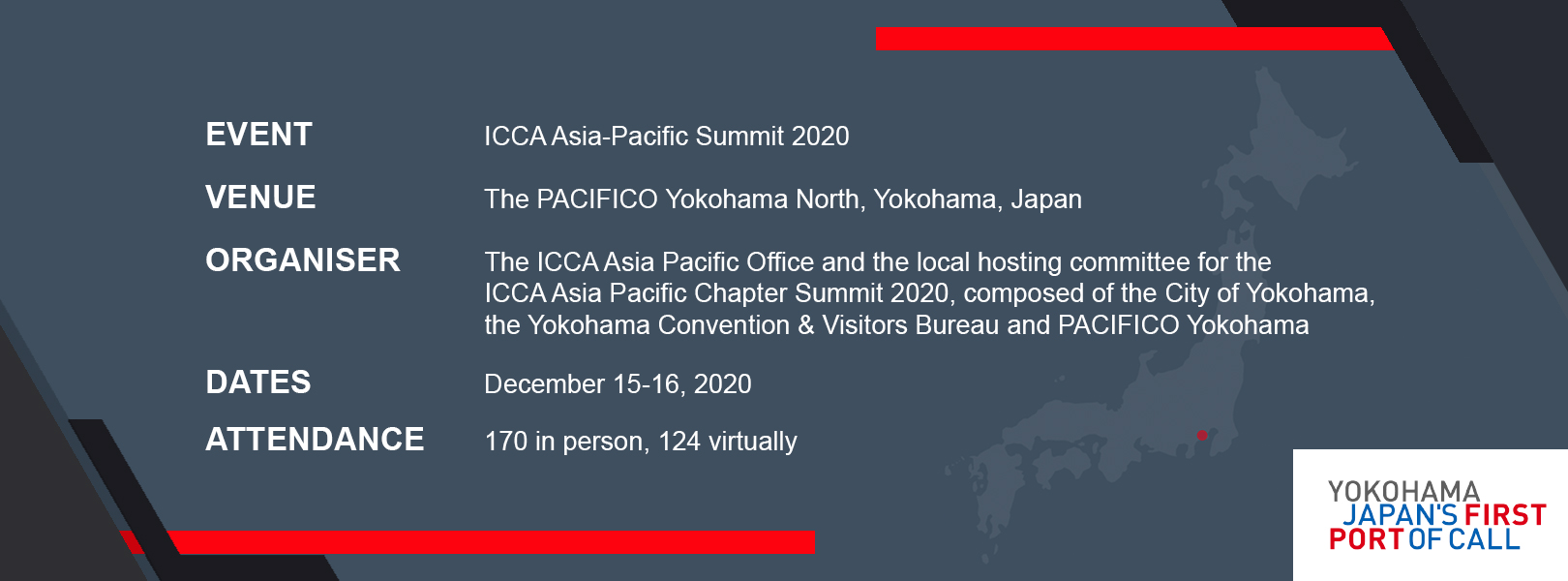Successfully hosting the 2020 summit of the Asia-Pacific chapter of the International Congress and Convention Association has demonstrated that the Yokohama Convention and Visitors Bureau is firmly placing the coronavirus health crisis in the past and moving ahead with MICE events that are both meaningful and memorable.
Brought to you by Yokohama Convention & Visitors Bureau
The health of participants was of the utmost importance, yet the situation did permit PACIFICO Yokohama to create an inclusive hybrid environment that brought together in-person and online participants.
Safety first
Hosting a major international event during a global health crisis posed a range of new problems to the challenges already associated with such an important occasion. The health and well-being of all the participants and staff was the top priority and PACIFICO Yokohama was swift to pioneer advanced safety measures to ensure that the venue was in compliance with government and industry protocols.
In collaboration with local health experts, additional protocols were devised specifically for Yokohama and the venue, including a contact tracing system via a smartphone app and the use of a QR code registration system to minimise contact.
Other measures included temperature screening, enforcement of social distancing, the provision of hand sanitiser throughout the facility, effective ventilation, advanced cleaning protocols and contingency planning.
The most challenging component surrounded networking and social events as well as meal times – which are also arguably the most important part of this kind of event. The utmost care was taken during coffee breaks and at meals, with individual meals served in “bento” boxes and cookies individually wrapped. Participants were given plenty of space and invited to not speak during the meal but only after finishing and putting a mask on.
An emergency plan was put in place that involved the prefectural health authorities – but the preparation and precautions proved effective as there were no reports of any participants being taken ill.
PACIFICO certification
The PACIFICO Yokohama complex has gone through the rigorous process required for GBAC STAR accreditation, a performance-based validation benchmark for the cleanliness of facilities created by the Global Biorisk Advisory Council. Certification ensures that protocols across 20 different areas are being effectively implemented and, as well as covering best-practices for cleaning and disinfection, provides a framework for leadership, strategy, planning, accountability and documentation.
Facilities and features
Already recognised as one of the top convention centres in the Asia-Pacific region, with more than 90 meeting rooms and 144,700m2 of floor space, PACIFICO Yokohama is also at the very heart of the historic, cosmopolitan and friendly port city that has been the gateway to Japan for more than a century.
Yokohama has nearly 100 hotels with more than 18,000 guest rooms across all budgets, with the convention centre within easy walking distance of many of the city’s hotels and its must-see attractions, including shops, restaurants, museums, art galleries, waterfront spaces and sporting and nightlife venues.
Unique venue, unique entertainment
Mindful of the need for an outdoor venue with plenty of space, but also the participants’ desire to communicate with colleagues and enjoy a meal and entertainment, the organisers’ solution was to secure the services of the Nippon Maru Memorial Park. The facility is alongside the stunningly preserved former Japanese sail training vessel, which is permanently docked at what was once a Mitsubishi shipyard but is now, due to the rapid development of Yokohama, surrounded by skyscrapers.
Originally launched in 1930, the ship survived a world war, trained 11,500 cadets and sailed the equivalent of more than 45 times around the Earth. Retired in 1984, the sailing ship has never before the focus for such an event, but there are high hopes that it will serve as a unique venue again in the future.
The organisers ensured that participants had ample space for distancing and see-through dividers were positioned on tables. Tents set up on the dockside were well ventilated but also heated to keep guests comfortably warm.
Traditional Japanese cuisine was served in individual bento boxes, including sustainably sourced seafood, while the lively dinner show was provided by the Yokohama Sisters.
“After all these months of the industry being at a total standstill, we were able to have this beautiful social event – it felt like clouds of darkness and depression were lifted,” said Keiko Nishimoto, deputy chair of the ICCA and treasurer of the Asia-Pacific chapter.
“For the first time in months, I could look around and see this event and I thought – we can do this! It’s possible.”
Commitment to sustainability
The summit also pioneered sustainability measures, becoming the very first associations meeting to purchase offset credits under the Yokohama Blue Carbon Offset System. Established by the city, the scheme offsets carbon emissions through funding initiatives linked to the ocean, such as planting seagrass that absorbs CO2 and supports a sustainable harvest.
Under the scheme, five Euros from every delegate’s registration fee was set aside to offset the carbon footprint of the event.
























